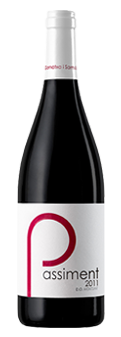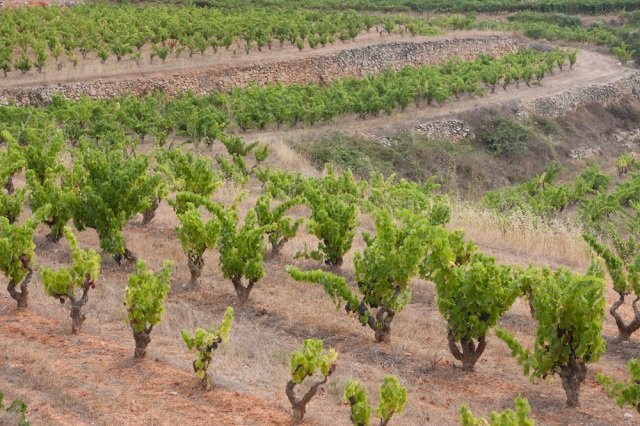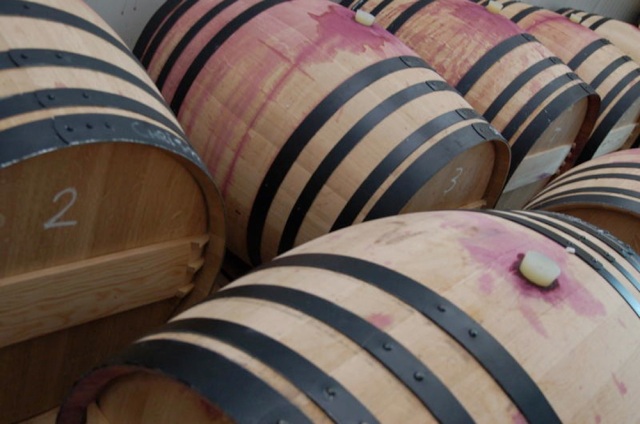329/365 – Catalonia – D.O. Montsant – Cornudella de Montsant – Celler Ronadelles – Petit Passiment 2011
Crepuscolo Sul Mare……..,
 Petit Passiment 2011, 40% Red Grenache, 50% Carignan and 10% Grey Grenache
Petit Passiment 2011, 40% Red Grenache, 50% Carignan and 10% Grey Grenache
“Singular and unique” Dark cherry red color, dense and shiny. Aromas of mature red berries, jammy and sweet. Dried fruit aromas, dried fig and plum. Some raisin notes. Nice and expressive entry. Fresh and voluptuous, nicely balanced and round with a pleasant sweetness on the palate. The jammy taste of mature fruit works well with the well integrated tannins, which are almost always present in wines from the Montsant region. A stylish finish with a long, slightly sweet after taste, with well rounded tannins. A fantastic free style wine that can be paired with both meat and fish, with fruit and almost any kind of dessert. Aging 6 moths on French oak. The harvest was characterized by a large amount of fruit due to extreme climatic conditions; a short yet cold winter, a wet spring and a dry, hot summer. Grapes matured slowly. The pronounced thermal contrasts gave the wine a freshness with high alcoholic and acidic levels. The grapes were harvested when they were overripe, left to turn into raisins on the vine and handpicked using 10kg boxes.
Celler Ronadelles is a small, family owned and run winery that lies in the shadow of the impressive Montsant mountain range. The winery came to life in 2002 and has gradually grown and developed until present days with its modern, elegant and innovative range of wines, under the distinctive labels of CAP DE RUC, GIRAL and PETIT de Joanne Cox. The small, dedicated team who are employed at the winery, care for the vines all year round before carefully preselecting and hand-picking the grapes at harvest time, always respecting the lunar calendar and integrating these traditional methods with modern technology.
In the early 1920’s a group of practicing farmers, concerned with the decline of the soil, sought the advice of Dr. Rudolf Steiner, founder of anthroposophy, who had spent all his life researching and investigating the forces that regulate life and growth. From a series of lectures and conversations held at Koberwitz, Germany, in June 1924, there emerged the fundamental principles of biodynamic farming and gardening, a unified approach to agriculture that relates the ecology of the earth-organism to that of the entire cosmos.
Regarded by some as the first modern ecological farming system and one of the most substainable, biodynamic farming has much in common with other organic approaches, such as emphasizing the use of manures and composts and excluding the use of artificial chemicals on soil and plants. Methods unique to the biodynamic approach include the use of fermented herbal and mineral preparations as compost additives and field sprays and the use of an astronomical sowing and planting calendar.



